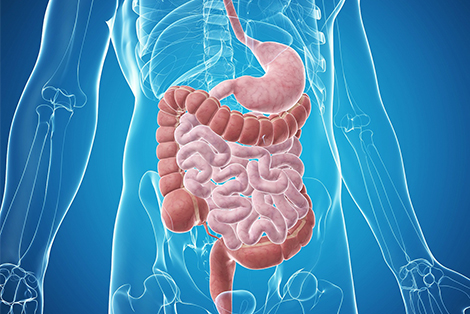
Oral NMN may relieve inflammatory bowel disease
Chinese scientists have found that oral administration of NMN may alleviate inflammatory bowel disease
In daily life, we tend to have abdominal pain, diarrhea and other symptoms because of unclean food, cold stimulation and other reasons, at this time the intestine is in an inflammatory response;
However, with proper treatment, these symptoms can resolve within a few days.
However, there is a group of people with chronic and recurring bowel inflammation, the cause and pathogenesis of which are not known, and this disease is collectively known as inflammatory bowel disease.
Suppository or enema are often used to treat inflammatory bowel disease, but these methods are much less convenient than oral medicine.
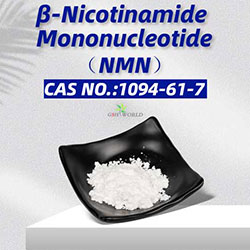
In 2022, researchers at the Affiliated Hospital of Jiangsu University found that oral administration of NMN (niacinamide mononucleotide) can effectively inhibit inflammatory bowel disease in mice and improve the barrier function of the intestine.
The study published in September of the same year in the journal Current Research in Food Science.
In the experiment, the researchers first added 3% sextran sulfate sodium salt (DSS) to the drinking water of 9-week-old mice (about the equivalent of 18 human years), which induced the mice to develop symptoms highly similar to inflammatory bowel disease, namely diarrhea, bloody stool, lethargy and so on.
After one week, the glucan sulfate treatment discontinued, and the mice switched to oral NMN treatment of 1g/kg per day (equivalent to 4.5g in humans) for 2 weeks.
This group of mice is the D+N group (post-intervention group). Another group of mice received the same dose of NMN throughout the experiment for a total of 3 weeks, which was the N+D group (the full intervention group).
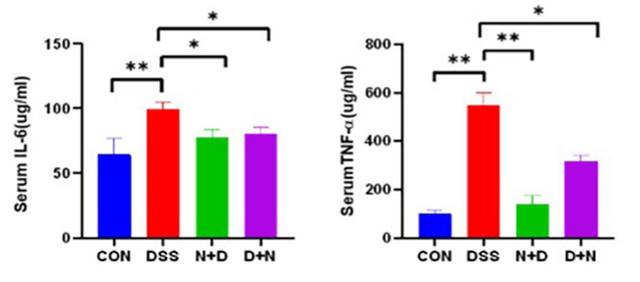
The results showed that after taking NMN, the inflammatory factors IL-6 and TNF-α in the serum of mice significantly reduced, demonstrating that NMN reduced the level of inflammation in mice.
Not only that, but taking NMN also restored the damaged mucus layer in the mice’s intestines.
The mucus layer is the first immune barrier of the intestine, which prevents direct contact between intestinal cells and intestinal contents and plays an important role in maintaining intestinal flora and intestinal health.
In the experiment, the researchers stained the intestinal tissue of mice and found that the blue-colored mucus portion of the intestinal tissue significantly reduced in the diseased control group that did not take NMN, while the mucus layer restored after taking NMN.
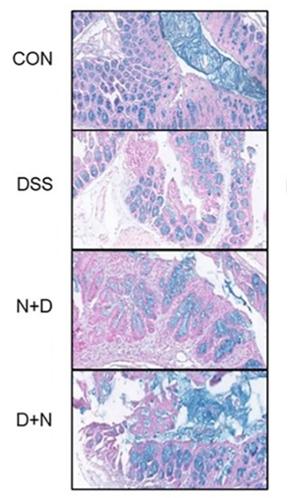
In addition, NMN reduced intestinal permeability and restored intestinal barrier function in inflammatory mice.
In the experiment, the researchers injected 500mg/kg of FD-4 (FITC-dextran 4 kda) fluorescent markers into the stomachs of mice;
Four hours later, the researchers found that the FD-4 fluorescent marker “leaked” through the intestines into the diseased mice, and that taking NMN significantly suppressed the symptoms.
The detection of FD-4 in serum also confirmed this conclusion.
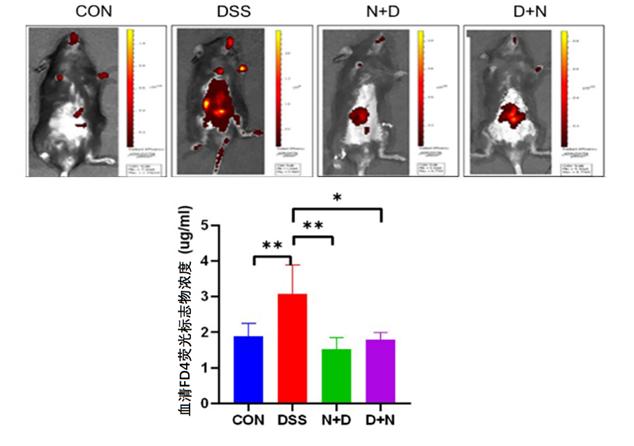
To sum up
This study found that NMN could effectively alleviate inflammatory bowel disease in mice and restore the normal function of the intestine,
and there was no significant difference in the therapeutic effect between the N+D group (whole-course intervention group) and the D+N group (after-treatment group).
The downside is that NMN did not reduce blood in the stool in mice with IBD, so it may not be a complete substitute for other therapies.
References:
- 1. Huang, P., Wang, X., Wang, S., Wu, Z., Zhou, Z., Shao, G., Ren, C., Kuang, M., Zhou, Y., Jiang, A., Tang, W., Miao, J., Qian, X., Gong, A., & Xu, M. (2022). Treatment of inflammatory bowel disease: Potential effect of NMN on intestinal barrier and gut microbiota. Current research in food science, 5, 1403–1411. https://doi.org/10.1016/j.crfs.2022.08.011
- Overview of Inflammatory Bowel Disease – Digestive Tract Diseases – MSD Diagnostic Manual Professional Edition
- https://www.msdmanuals.cn/professional/gastrointestinal-disorders/inflammatory-bowel-disease-ibd/overview-of-inflammatory-bowel-disease